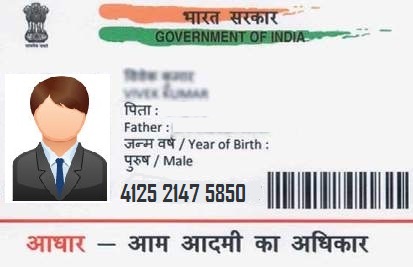Right to Information v/s Right to Privacy- India's AADHAR Dilemma
India’s Aadhaar or Unique Identification project is the world’s largest biometrics-based identity programme. The Aadhaar number of a person is a 12 digit numerical that connects to a central database of demographic and biometric information of that person for authentication of his/her identity.
Initially the Aadhaar project had a limited utility i.e. to stop theft, duplication, impersonation issues by correctly identifying the beneficiaries under India’s social welfare programs. But now, the use of Aadhaar is expanding into many new areas-admissions, examinations, marriage registrations, pensions, recruitment, buying property, rail concessions, opening bank, de-mat, mutual fund accounts, loans, , online payments etc; the latest in the bandwagon being filing of income tax returns. In fact the rise and usage of Aadhaar as an identity card has been so meteoric that it has drawn suspicion that it could perhaps serve as a tool of mass surveillance by the Govt. and violate the privacy rights of its citizens.
But before deciding whether the Aadhaar Act 2016 violates a person’s right to privacy, the Courts realized that it would have to first answer the question –Whether the right to privacy constitutes a fundamental right under the Constitution. Many legal minds are of the opinion that the court’s strategy to split the issue of whether privacy is a fundamental right from the constitutional challenge to Aadhaar is a mistake. So far, the issue of privacy has been adjudicated by the Supreme Court in a variety of factual scenarios ranging from police surveillance, telephone tapping, sexual rights, narco-analysis, search and seizure etc. In each case the court has defined privacy in that very specific context alone. Thus choosing to tackle the privacy issue by itself, stand alone is a complex jurisprudential exercise as there are many facets to privacy in the modern world which encompasses not just privacy in the physical state but also to privacy in the spiritual and intellectual state as well
The debate in India on privacy and data protection has come rather late. In the time spent by the Courts in adjudicating on the Aadhaar

Act and whether it violates privacy, the odds have been stacked heavily in favour of the Aadhaar which overwhelms by the sheer strength of its numbers. More than 105 crore or 80% of the population now possesses an Aadhaar card. Moreover the Govt. has spent over Rs 9000 crores on the project.
The nine-judge Supreme Court Bench also observed that a significant amount of personal data has already been given by individuals to private players and with the proliferation of the Internet and social media, its reach has multiplied exponentially. In India cyber laws are weak, technical, complicated to understand for the layman and see very little enforcement. India has yet to adopt a comprehensive Data Protection Code as has been done by the UK and European Union.
Irrespective of whatever decision is taken by the Supreme Court it cannot reverse the rampant sharing and misuse of personal data by private agencies which has already occurred. In light of this, the right to privacy of an individual is illusory as it has already been compromised.
